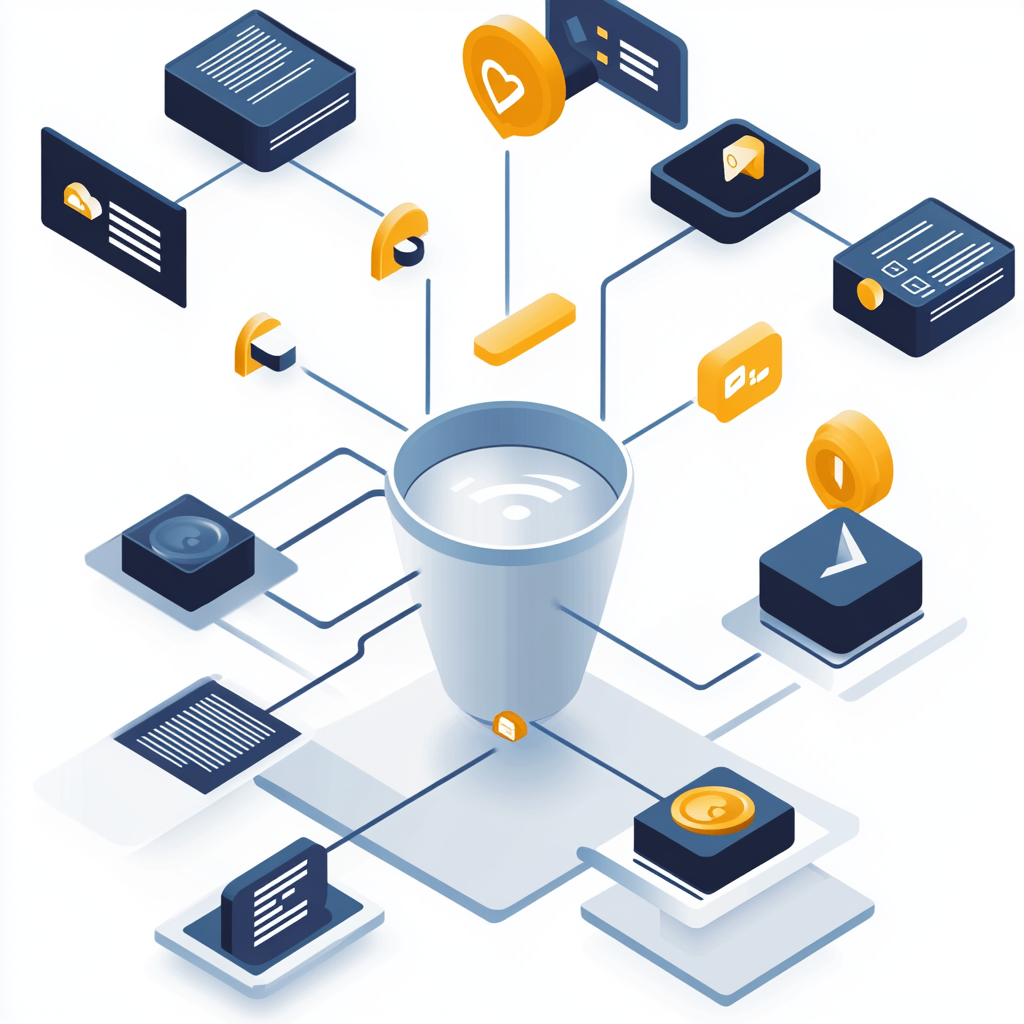The marketing landscape is shifting faster than ever, and CMOs who aren’t leveraging artificial intelligence are already falling behind. AI marketing agencies represent more than just a technological upgrade; they’re reshaping how brands connect with customers, optimize campaigns, and measure success. As traditional marketing approaches struggle to keep pace with consumer expectations and data complexity, understanding what AI brings to the table becomes crucial for marketing leaders.
This comprehensive guide explores the transformative power of AI in marketing, helping CMOs navigate the complexities of selecting and implementing AI-driven marketing solutions. From understanding core capabilities to avoiding common pitfalls, you’ll discover how to harness artificial intelligence to drive measurable business growth and competitive advantage.
How AI marketing agencies transform campaign performance
AI marketing agencies fundamentally change how campaigns are conceived, executed, and optimized. Unlike traditional approaches that rely on historical data and intuition, AI-driven optimization processes vast amounts of real-time information to make split-second decisions that improve performance across every touchpoint.
The predictive analytics capabilities of modern AI systems allow marketers to anticipate customer behavior before it happens. These systems analyze patterns in browsing behavior, purchase history, and engagement metrics to predict which customers are most likely to convert, when they’re ready to buy, and what messaging will resonate most effectively.
Personalization at scale represents perhaps the most significant transformation AI brings to marketing. Where traditional campaigns might segment audiences into broad categories, AI can create individual customer journeys for thousands or millions of users simultaneously. This level of customization extends beyond simple name insertion, encompassing product recommendations, content timing, channel selection, and creative variations tailored to each user’s preferences and behavior patterns.
Programmatic advertising becomes exponentially more effective when powered by AI algorithms. These systems can evaluate millions of ad placement opportunities in milliseconds, considering factors like audience quality, competitive landscape, and historical performance to make optimal bidding decisions. The result is improved ad spend efficiency and higher conversion rates across paid channels.
Content optimization through AI extends beyond A/B testing to encompass dynamic content creation and real-time adjustments. AI systems can generate multiple variations of headlines, descriptions, and creative elements, then automatically optimize based on performance data. This continuous improvement cycle ensures content remains fresh and effective without requiring constant manual intervention.
Customer journey mapping becomes more sophisticated with AI’s ability to track and analyze complex, multi-touchpoint paths to conversion. Traditional attribution models often miss the nuanced interactions between channels, but AI can identify the true impact of each touchpoint and optimize accordingly.
What capabilities should CMOs expect from AI agencies
When evaluating AI marketing agencies, CMOs should expect a comprehensive suite of machine learning algorithms specifically designed for marketing applications. These algorithms should encompass predictive modeling for customer lifetime value, churn prediction, and demand forecasting, as well as recommendation engines that power personalized product suggestions and content delivery.
Natural language processing capabilities are essential for modern marketing operations. AI agencies should offer sentiment analysis tools that monitor brand mentions across social media and review platforms, chatbot development for customer service automation, and content generation assistance for creating personalized email campaigns, product descriptions, and social media posts.
| AI Capability | Marketing Application | Expected Outcome |
|---|---|---|
| Computer Vision | Visual content analysis, brand monitoring | Automated image tagging, logo detection |
| Predictive Analytics | Customer behavior forecasting | Improved campaign timing and targeting |
| Natural Language Processing | Content creation, sentiment analysis | Personalized messaging at scale |
| Machine Learning | Campaign optimization, audience segmentation | Continuous performance improvement |
Computer vision applications in marketing include visual content analysis for social media monitoring, automatic image tagging for large product catalogs, and brand logo detection across digital properties. These capabilities become particularly valuable for brands with extensive visual content libraries or those monitoring brand presence across visual platforms.
Marketing automation platforms powered by AI should integrate seamlessly with existing martech stacks. This includes CRM systems, email marketing platforms, social media management tools, and analytics suites. The AI agency should provide robust APIs and pre-built integrations that minimize implementation time and technical complexity.
Advanced segmentation capabilities go beyond demographic and behavioral data to include psychographic profiling and predictive segments based on likelihood to convert, churn, or engage with specific content types. These sophisticated segmentation models enable more precise targeting and personalized messaging strategies.
Real-time decision-making engines should be capable of adjusting campaigns, content, and targeting parameters based on live performance data. This includes automatic budget reallocation between high and low-performing campaigns, dynamic pricing adjustments, and real-time content personalization based on user behavior.
Why traditional marketing metrics fail with AI campaigns
Traditional marketing metrics were designed for simpler, linear customer journeys that no longer reflect modern consumer behavior. Advanced attribution models powered by AI can track complex, multi-device, multi-channel paths to conversion that traditional last-click or first-touch models completely miss.
Predictive lifetime value calculations replace static customer value assessments with dynamic, forward-looking projections. While traditional metrics might evaluate customers based on past purchases, AI-driven models consider engagement patterns, browsing behavior, and external factors to predict future value potential. This shift enables more sophisticated customer acquisition and retention strategies.
AI-specific KPIs focus on algorithmic performance and learning efficiency rather than just campaign outcomes. Metrics like model accuracy, prediction confidence scores, and algorithm learning rates become crucial for understanding whether AI systems are improving over time and delivering expected performance gains.
Real-time optimization metrics provide immediate feedback on campaign performance, enabling rapid adjustments that traditional weekly or monthly reporting cycles cannot support. These metrics include real-time conversion probability scores, dynamic audience quality assessments, and instant ROI calculations that inform immediate tactical decisions.
The shift from vanity metrics to revenue-focused performance indicators becomes more pronounced with AI campaigns. While traditional marketing might celebrate increases in impressions or click-through rates, AI-driven campaigns prioritize metrics directly tied to business outcomes, such as customer acquisition cost, lifetime value ratios, and revenue attribution accuracy.
Multi-touch attribution becomes essential when AI orchestrates complex customer journeys across multiple channels and touchpoints. Traditional single-touch attribution models fail to capture the nuanced role each interaction plays in the conversion process, leading to misallocated budgets and missed optimization opportunities.
Common pitfalls when selecting AI marketing partners
One of the most significant pitfalls CMOs encounter is failing to establish clear vendor evaluation criteria that go beyond surface-level AI capabilities. Many agencies claim AI expertise without demonstrating deep understanding of marketing applications or proven results. CMOs should demand specific examples of algorithm performance, model accuracy rates, and measurable business outcomes from previous implementations.
Data privacy considerations become exponentially more complex with AI marketing systems that process vast amounts of customer information. Agencies must demonstrate compliance with GDPR, CCPA, and other privacy regulations, while also providing transparency about data collection, processing, and storage practices. The lack of clear data governance frameworks can expose organizations to significant legal and reputational risks.
Integration challenges often emerge when AI marketing tools cannot seamlessly connect with existing technology infrastructure. CMOs should evaluate potential partners based on their ability to integrate with current CRM systems, marketing automation platforms, and analytics tools without requiring extensive custom development or data migration projects.
Unrealistic ROI expectations plague many AI marketing implementations when organizations expect immediate, dramatic improvements without considering the learning curve required for AI systems to optimize performance. Successful AI implementations typically show gradual improvement over time as algorithms learn from more data and refine their predictions.
Lack of transparency in AI algorithms presents a significant risk when marketing partners cannot explain how their systems make decisions or what factors influence campaign optimization. This “black box” problem makes it impossible to understand why certain strategies succeed or fail, limiting the organization’s ability to learn and improve.
The importance of human oversight in AI-driven campaigns cannot be overstated. Agencies that promote fully automated solutions without human monitoring and intervention capabilities often fail to account for market changes, brand safety concerns, or strategic pivots that require human judgment and creativity.
Strategic implementation roadmap for AI marketing adoption
The foundation of successful AI marketing adoption begins with a comprehensive data audit that evaluates the quality, completeness, and accessibility of existing customer information. Organizations must assess their current data collection practices, identify gaps in customer journey tracking, and establish data quality standards that will support AI algorithm training and optimization.
Team training needs extend beyond basic AI literacy to encompass specific skills in data interpretation, algorithm management, and AI-driven campaign optimization. Marketing teams require training in new metrics and KPIs, while technical staff need education in AI system maintenance and troubleshooting. This educational investment ensures organizations can maximize their AI marketing investments.
Technology infrastructure assessment involves evaluating current systems’ ability to support AI workloads, including data processing capabilities, integration requirements, and scalability considerations. Organizations may need to upgrade their data management systems, implement new analytics platforms, or enhance their cloud computing infrastructure to support AI marketing initiatives.
Pilot program development should focus on specific, measurable use cases that demonstrate AI’s value without overwhelming existing operations. Successful pilots typically target areas like email personalization, programmatic advertising optimization, or customer segmentation enhancement, where results can be clearly measured and compared to traditional approaches.
Scaling strategies for enterprise-level deployment require careful planning around change management, technology integration, and performance monitoring. Organizations should establish clear governance frameworks, define success metrics, and create feedback loops that enable continuous improvement as AI marketing capabilities expand across different channels and campaigns.
The implementation roadmap should include regular assessment points where organizations evaluate AI performance, adjust strategies based on learning, and plan for expanded capabilities. This iterative approach ensures AI marketing investments continue delivering value while adapting to changing market conditions and business objectives.
As AI continues reshaping the marketing landscape, CMOs who understand these capabilities, challenges, and implementation strategies will be best positioned to drive meaningful business growth. The key lies not just in adopting AI technology, but in thoughtfully integrating it into broader marketing strategies that prioritize customer value and measurable business outcomes. Success with AI marketing agencies requires clear expectations, careful partner selection, and commitment to the learning process that transforms both technology capabilities and organizational marketing effectiveness.



